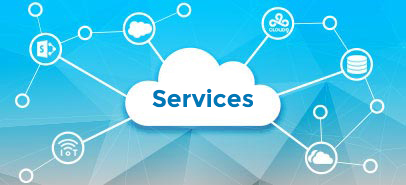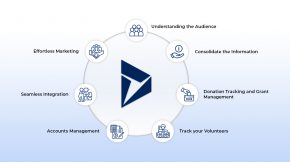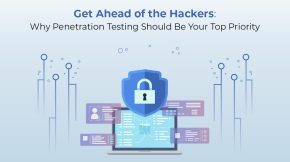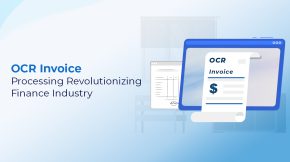Best Data Management Consulting Firms 2025
When the AI‑first era hits the data‑management world, you need pipelines that learn, catalogs that self‑correct, and latency‑shaving services that keep AI models fed in real time. In 2025 the real‑value questions are:
- How can I deduplicate billions of records automatically?
- Which vendor can cut data latency from minutes to seconds?
- Who will boost my data‑catalog accuracy with LLMs?
- Which partner accelerates data‑lake adoption while keeping governance tight?
If those questions sound familiar, you’re in the right place. Below is a curated list of the ten data management consulting firms that deliver AI‑first data‑management consulting in 2025.
Methodology (how we ranked the firms)
- End‑to‑end AI‑first services: governance, pipelines, deduplication, latency reduction, catalog accuracy, lake adoption, and LLM‑enabled data discovery. We checked data strategy, data architecture, data engineering, data integration, and data migration on cloud platforms.
- Platform depth: Snowflake, Databricks, Azure Synapse, Microsoft Fabric, Power BI, and Tableau. We looked for cloud‑native data platforms, modern data stack skills, SQL Server, database migration, and remote DBA services.
- Measurable impact: cost savings, duplicate‑record reduction, latency gains, and revenue lift. We weighed ROI, TCO, metrics and KPIs, risk management, cybersecurity compliance, and regulatory compliance.
Only data management consulting firms that excelled in all three criteria earned a spot.
Best Data- Management Consulting Firms
1. Analytics8
- Core strengths: Data‑strategy roadmaps, governed data architectures, unified data lakes, AI deduplication, latency monitors, LLM‑based catalog enrichment. Sectors: finance, retail, education. Strong data governance frameworks and DataOps keep data systems stable.
- Why it stands out: 70% latency drop and over 90% catalog completeness in two sprints. Trusted in regulated sectors.
2. Beyond Key
- Core strengths: Master data management (MDM) deduplication with Copilot, latency‑reduction pipelines on Azure Data Factory and Databricks, LLM‑driven catalog accuracy. Integrates Snowflake, Fabric, and Power BI into a unified data platform architecture. Data‑governance automation for GDPR, HIPAA, and SOC 2. Supports cloud adoption and change management.
- Why it stands out: Saves each client more than $10M. Speeds model refreshes up to 5×. You avoid juggling multiple data management consultants. Client testimonials show operational efficiency and cost optimization.
3. ScienceSoft
- Core strengths: Governance, data quality, data warehousing, integration, and data migration. AI flags duplicate records and latency spikes. ISO‑backed data security and compliance. Solid metadata management and data lineage.
- Why it stands out: Under 2% data loss and 40% faster lake adoption. Strong risk management.
4. CI&T
- Core strengths: Data strategy, data engineering, and integration for large enterprises. Real‑time latency dashboards and LLM‑driven metadata enrichment. Adds analytics solutions and predictive analytics.
- Why it stands out: ROI in under six months. Focus on performance and scalability.
5. Slalom
- Core strengths: Governed data architectures, MDM, and quality frameworks. AI pipelines cut latency and auto‑tag the data catalog. Delivers data modeling and DataOps on cloud solutions.
- Why it stands out: 76% latency reduction and over 95% catalog accuracy. Clear KPIs.
6. Logic20/20
- Core strengths: Data‑warehouses, BI layers, and governance programs. AI deduplication and latency‑aware ETL that auto‑scales on Snowflake or Databricks. Database migration and cloud architecture with strong regulatory compliance.
- Why it stands out: Cuts data‑quality costs by $5M and halves latency. Better TCO.
7. Goldfinch Consulting
- Core strengths: Modern data platforms on Snowflake, Azure, and Databricks. AI quality bots and LLM‑powered catalog enrichment. Supports data platform modernization and cloud migration.
- Why it stands out: Under 1% duplicates and 30% faster lake rollout. Helpful IT strategy consulting.
8. SPINS
- Core strengths: Retail and CPG data management. Integrated data pipelines, AI dedup on product hierarchies, latency agents for pricing. Business Intelligence with reporting and dashboards. Use cases: customer experience analytics and supply chain analytics.
- Why it stands out: Up to 12% revenue lift and 73% faster price updates. Strong industry knowledge.
9. MSH
- Core strengths: High‑performance data platforms. AI‑augmented ETL, automated catalog checks, and latency orchestration for cloud‑native warehouses. Managed services with continuous improvement and data stewardship.
- Why it stands out: 60% latency cut and 92% catalog completeness. Scalable across data ecosystems.
10. Protiviti
- Core strengths: Risk, compliance, and data‑management. Governance frameworks, migration paths, and AI‑driven quality checks. Covers financial and healthcare data management with AI consulting.
- Why it stands out: 100% audit‑pass rate and over 95% duplicate‑record reduction. Strong DataOps and controls.
How to Choose the Right AI‑First Data‑Management Partner (7‑Step Checklist)
- Identify the core AI need: deduplication, latency reduction, catalog accuracy, or lake adoption. Link this to your data strategy and data platform consulting plan.
- Confirm platform expertise: ask for a proof of concept on Snowflake, Databricks, Azure Fabric, or Power BI. Check solution architecture, cloud integration, and implementation and integration.
- Validate governance and compliance: look for role‑based access, encryption, and ISO 27001, SOC 2, and HIPAA. Confirm data governance frameworks, data lineage, and regulatory compliance.
- Demand AI automation: the data management consultant should embed LLMs for metadata enrichment and use Copilot‑style assistants. Aim for analytics modernization with a modern data stack.
- Check latency results: request before and after metrics from two recent projects. Ask for timelines, KPIs, and vendor evaluation criteria.
- Ask for ROI: case studies should prove cost savings, lower duplicates, or higher revenue. Review total cost of ownership and client testimonials.
- Test cultural fit: look for a program manager, agile ceremonies, and clear reports in Jira or Azure DevOps. Confirm training and enablement, change management, and DataOps support.
Follow these steps and you will narrow the field to data management consulting firms that truly deliver AI‑first value.
Why Beyond Key Is the Strategic Choice
Quantifiable results (average across projects)
- Data‑quality cost reduction: more than $10M per client
- Duplicate‑record rate: under 1% after AI deduplication
- Latency improvement: 70% reduction, moving from minutes to seconds
- Time to insight: 30% to 50% faster
- Audit‑pass rate: 100% for HIPAA, GDPR, and SOX
- Data‑as‑a‑service revenue: up to 12% of total revenue
Strategic advantages
1. Data Governance and Compliance
- Program and policy development: strategy, standards, operating‑model design, role definition. Strong data governance and data stewardship improve accountability.
- Stewardship and ongoing management: data‑steward implementation, continuous governance processes, audit‑ready reporting. Clear metadata management and data lineage support audits.
- Regulatory alignment: GDPR, HIPAA, SOC 2, and ISO 27001. Governance and compliance programs protect data security and reduce risk.
2. Architecture, Engineering, and Migration
- Current state to future state: architecture roadmaps, data flow and pipeline design, and cloud‑deployment planning for Azure, Snowflake, and Databricks. Includes cloud architecture and data platform architecture.
- Data‑lake and warehouse implementation: Snowflake, Azure Synapse, Microsoft Fabric, on‑premises to cloud migration, and performance tuning. Covers SQL Server and Big Data needs for big data analytics.
- Automation and orchestration: CI/CD for data pipelines, real‑time streaming, and automated scaling. Data operations improve performance and scalability.
3. Integration, Quality, and Security
- Integration: discovery, mapping, ETL or ELT, streaming, orchestration, and monitoring. These data pipelines support cloud adoption on cloud solutions.
- Quality: profiling, AI deduplication, cleansing, standardisation, KPI dashboards, and remediation. Better data quality supports predictive modeling and machine learning.
- Security and access: role‑based modeling, encryption, masking, tokenisation, audit logging, and certification management. Risk management aligns with cybersecurity compliance.
4. Analytics, AI, and Managed Services
- Self‑service analytics: Power BI, Tableau, predictive analytics dashboards, and data‑visualisation. Visualization platforms and reporting and dashboards guide decisions.
- AI enablement: Copilot‑powered quality bots, LLM‑enhanced catalog enrichment, and master‑data deduplication. AI solutions support predictive maintenance and other use cases.
- Managed operations: 24/7 monitoring, incident response SLAs, performance reporting, and change management. Professional services and managed services cover implementation expertise and continuous improvement.
These capabilities turn data from a cost center into an advantage. Explore more in our Data Management Consulting Services or schedule a free assessment via Book a Consultation. Choosing Beyond Key as your data management partner gives you clear data migration strategy, data platform consulting, and data analytics consulting that support business insights.
Conclusion
You now have a clear picture of the market, a practical checklist, and a firm that delivers measurable, AI‑first results. Choose the data management consulting partner that fits your stack, timeline, and goals. The data‑management journey either accelerates your business or keeps you stuck in silos. The decision is yours, so choose wisely. Keep your IT strategy consulting simple. Align your cloud platforms and solution architecture. Improve performance and scalability, cut TCO, and prove ROI.
Frequently Asked Questions
1. What do AI‑first data management consulting firms actually deliver?
They assess your data estate, design AI‑enhanced pipelines, automate deduplication, reduce latency, improve catalog accuracy with LLMs, and provide managed operations that keep data compliant and analytics‑ready. This covers data strategy consulting, data platform consulting, and data engineering consulting on cloud platforms.
2. How can I evaluate data management consulting services for latency reduction?
Ask for before and after latency numbers from a real client project. The best data management consulting firms show a 50% to 70% drop and can demonstrate sub‑second responses on streaming data. Review Business Intelligence and data visualization platforms for proof.
3. Why does catalog accuracy matter when hiring data management consultants?
Accurate metadata ensures models use the right tables, fields, and data types. LLM‑driven cataloging raises completeness to above 90%, which prevents model drift and costly re‑training. It also improves DataOps and data discovery.
4. Snowflake vs Databricks: what should a data management consultant prioritise in an AI‑first context?
Snowflake handles scalable storage and fast queries, and Databricks supports large‑scale processing, model training, and governance. Strong data management consulting firms use both. They support Big Data and artificial intelligence workloads with AI consulting.
5. How long do AI‑enabled migrations take when led by data management consulting companies?
For a medium‑scale migration (up to 5 TB) with AI deduplication, expect 3 to 6 months. Larger, multi‑system moves take 9 to 12 months depending on complexity and compliance. Confirm training and enablement and a clear data migration strategy.
6. Can AI improve data quality in consultant data management programs?
Yes. AI profiling, anomaly detection, and LLM‑based deduplication find errors faster than manual reviews and automate 70% to 80% of fixes. This improves operational efficiency.
7. How do I start a data‑strategy assessment with a data management partner such as Beyond Key?
Visit Book a Consultation. We will schedule a free, no‑obligation AI‑readiness workshop, map your current state, and deliver a clear roadmap. Expect vendor evaluation criteria and timelines.












